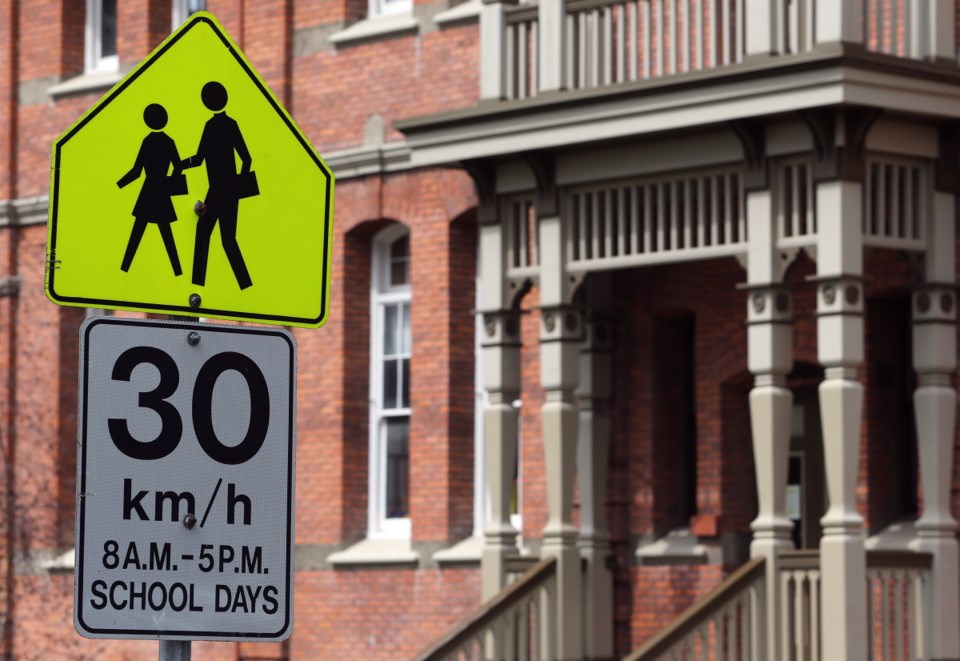A parents group wants the Greater Victoria school district to lift its moratorium on wireless technology in elementary schools.
The Victoria Confederation of Parent Advisory Councils urged the change after a district-wide survey found many parents support Wi-Fi in schools, although one in five have concerns about adverse health effects.
VCPAC attempted to strike a balance by recommending the district permit Wi-Fi in schools on the condition that each school obtain the support of parents, teachers, students and staff.
It also urged schools to respond to any “environmental sensitivities” reported by students and use the most up-to-date technology in order to reduce Wi-Fi radiation.
“I think it should be made clear that VCPAC is not taking the stand that, ‘We want you to put Wi-Fi in every school,’ ” president John Bird said.
“That’s not what we’re saying. We’re saying it should be permitted with proper consultation and sensitivity to anyone that has environmental concerns.”
The district allows wireless technology in middle and high schools, but has a moratorium on its use in most of its elementary schools.
The issue has sparked a heated debate during the past three years. People who favour Wi-Fi as a learning tool in classrooms say they have been threatened and harassed, while opponents of the technology say they have been dismissed as the “tinfoil hat crowd” for suggesting that radio-frequency energy from Wi-Fi routers can make people sick.
The survey results reflect the divide.
When asked whether, given the choice, they would enrol their child at a school equipped with Wi-Fi technology, 43 per cent of parents said they would. But a significant minority — 27 per cent — disagreed or strongly disagreed, while 30 per cent had no firm opinion.
In addition to health concerns, parents fear that Wi-Fi will create more distractions for students, that schools will be unable to effectively monitor what children are viewing on the Internet and that increased web access will lead to more cyberbullying.
The VCPAC said 2,875 parents completed the survey for a response rate of 21 per cent.
Clint Lalonde, whose children attend Willows Elementary, welcomed VCPAC’s call for an end to the moratorium. He has argued that banning Wi-Fi in elementary schools deprives students and teachers of a valuable tool that allows greater mobility and access to the Internet.
“By not having Wi-Fi in classrooms, we really restrict that ability for our kids to learn the skills that they need to be successful,” he said.
But Lalonde said he worries that requiring each school to consult prior to Wi-Fi installation will fuel further dissension. “I think we’re setting ourselves up for many, many years of battles within each school.”
He believes the district should rely on public health officials to determine whether Wi-Fi in schools is safe rather than debating the issue at the board or school level.
Health Canada says it has determined, based on extensive scientific evidence, that “exposure to low-level [radio-frequency] energy, such as that from Wi-Fi equipment, is not dangerous to children.”
Wi-Fi’s opponents contend that its safety remains unproven and that industry-funded research should be treated with skepticism.
Janis Hoffmann, who lives in Colwood, said her grandson suffered from headaches while attending a school with Wi-Fi in the Sooke school district. The symptoms disappeared when he moved to a Wi-Fi-free school in Greater Victoria last year, she said.
“All of a sudden we’re not using any more Advil, Tylenol or anything and all the headaches are gone,” she said. “It was night and day.”
Hoffmann said the district should take a precautionary approach and use hard-wired systems. Failing that, Hoffmann said the district should have at least one Wi-Fi-free school at each elementary, middle and high school level, as recommended by the B.C. Confederation of Parent Advisory Councils.
“That would make me happy,” she said.



